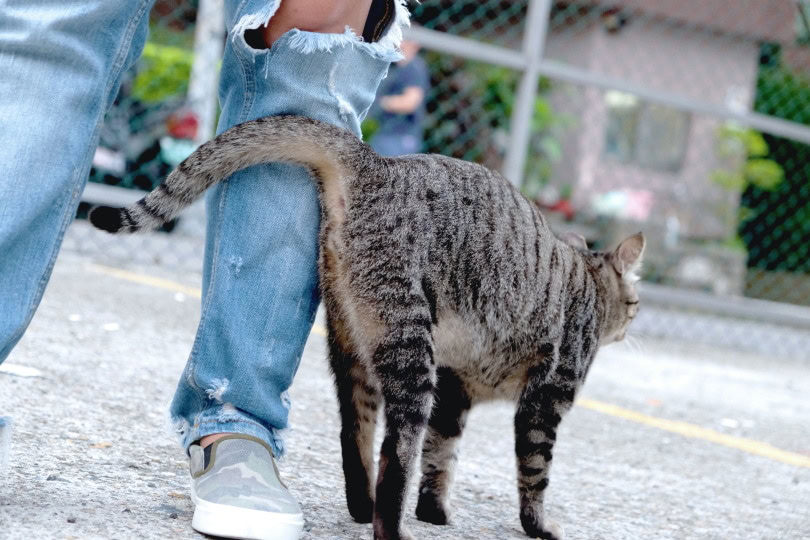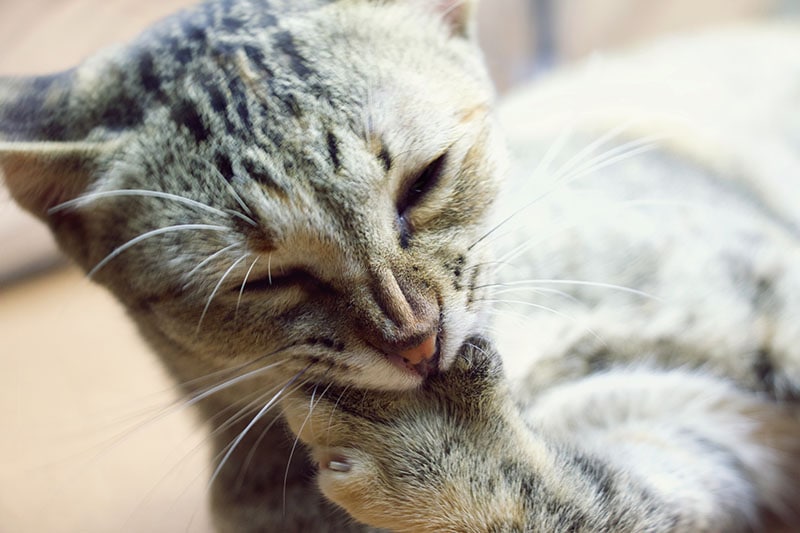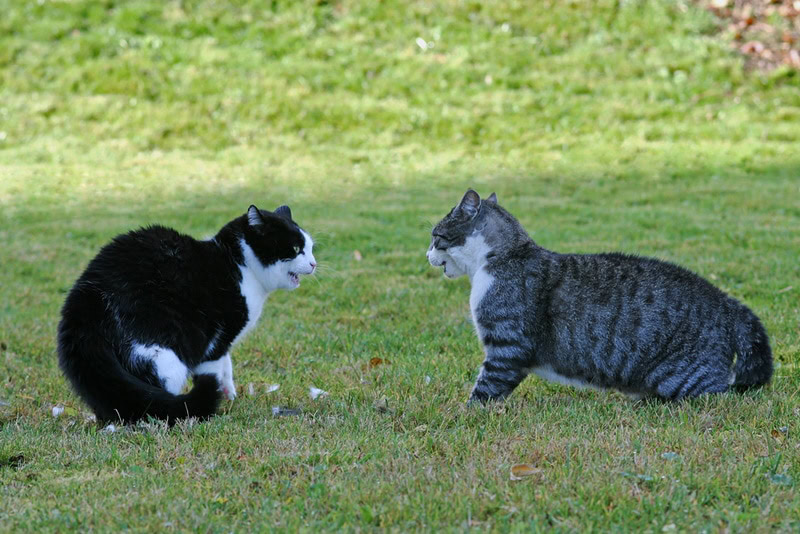VET APPROVED

The information is current and up-to-date in accordance with the latest veterinarian research.
Learn more »Click to Skip Ahead
Being owned by a cat means accepting their need for independence. Our cats love us in their own way, but they don’t have a dog’s famous obedience — which is part of the reason that we love them so much.
But have you ever wondered if your cat knows their name and might even respond to it? There’s no question that cats are intelligent, and yes, cats recognize their name. But do they not respond to their names because they don’t know it or because they just don’t care?
Read on as we tackle this question. We also give you a few ways to test how well your cat knows their name.

Do Cats Recognize Their Names?
So, do cats know their names? Yes, they do! In April 2019, an article was published in the journal Nature about this very subject.
This study took place in Japan and investigated 78 cats and if they could distinguish their names from other random words spoken to them. Most cats lived with their families, some alone and others in multi-cat homes, but a few others were living in a cat café.

The Experiment
The University of Tokyo researchers, led by Atsuko Saito, conducted four experiments. In the first, cats living primarily on their own heard their owners say four different words that were similar to their own names, followed by their actual names.
In the second experiment, the cat’s owner first said words that sounded similar to the cat’s name, just like in the first experiment. Then, an unfamiliar person said the cat’s actual name. Although the cats’ reactions were less pronounced than when their owner said their name, some cats still responded to their name when it was called by a stranger.
The third experiment involved cats in multi-cat households. These cats would hear the names of their cat buddies that they were living with, again followed by their actual names.
The last experiment was conducted with cats from cat cafés but was otherwise similar to the third experiment. The result was that those cats in the café setting showed less consistent responses to their names, perhaps due to the lack of consistency in their daily interactions with several different people.

The Results of the Experiments
The results demonstrated that the cats actually did respond to their own names. While in their homes, they initially seemed to react to the first few words that sounded similar to their names. However, they eventually seemed to get bored and started ignoring these words until it got to their actual names!
Once they heard their names, they immediately perked up and showed signs that they were listening and even intrigued. They would twitch their ears, move their heads, meow, and sometimes even get up.
Even more interestingly, they responded to their names when both their owners and the strangers spoke. More telling is that in multi-cat households, these cats would react to their names even after hearing the other cats’ names being spoken.
The results weren’t quite as good at the cat café, but given the number of clients who enter the café at a given time and call to all the cats, it probably made it harder for these cats to differentiate their names from those of the other cats.
On the Other Hand
As compelling as this research is, there are experts who believe that it doesn’t really prove anything.
This article by Smithsonian Magazine notes that while cats often recognize their names, they often choose not to respond.
Mikel Delgado studies animal behavior at the University of California. He believes that cats might just think their name is another word that means attention or food. This is called “associative learning,” which most animals are capable of. It’s clear that more research is necessary.

Cats and Research
Regardless of the results, the truth is that there just aren’t enough studies done on cats. A few studies have been attempted, but unsurprisingly, cats are less than cooperative.
Another study that was carried out by Saito, the same Japanese researcher, discovered that a cat does recognize their owner’s voice from that of strangers even without the owner’s physical presence for visual cues.
The overall takeaway here is that while the research that Saito and her team did was fantastic and an important step for us to further understand our relationship with cats, more studies need to be done.
Humans and Cats
Part of what explains the way that cats interact with us in comparison to dogs is how long they have been domesticated.
It is believed that dogs were domesticated between 23,000 and 30,000 years ago, which was even before horses. Dogs were domesticated for a purpose. They have long been companions and working for humans for as long as they’ve been with us.
Now, for cats, they’ve been living with humans for around 9,500 years, and we haven’t been breeding them with any particular purpose (other than appearance). Most of this can help explain the different relationships that we have with cats compared to dogs.
This also tells us why our cats can recognize their names and our voices but pick and choose how and when to react.

Do Your Own Experiment
You can try conducting your own experiment on your cat using the same techniques used in the study. Pick four different words that have a similar length to your cat’s name. Say each word without any inflection or tone, and pause for about 10 to 15 seconds between each word. Then, say your cat’s name exactly the same way as the other words.
Does your cat react in some way? Do they look at you, twitch their ears, or maybe even come to see you? Then, the chances are that your cat does indeed know their name!


Conclusion
So, it does seem that cats can learn their names. Maybe it’s associative learning, or maybe they flick their ears at us because they do know that we’ve just said their name.
But perhaps it doesn’t matter if our cats respond to our voices or their names because they’re expecting food or pets. What truly matters is that we love them and take care of them, and they reward us with all that purring and making biscuits just when we need it the most!
Featured Image Credit: U Photo, Shutterstock











